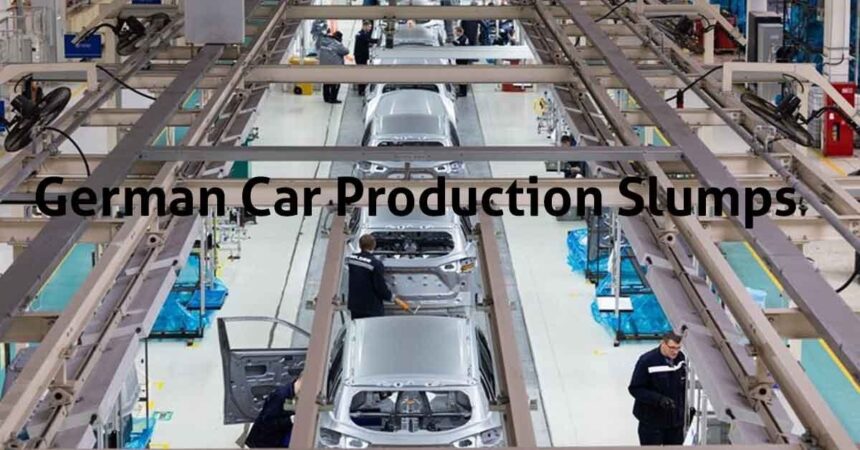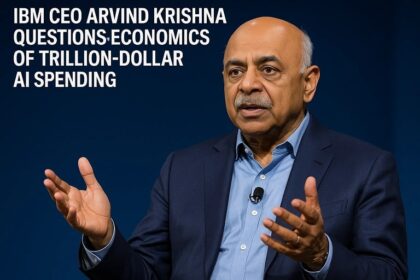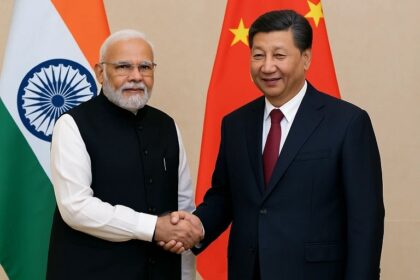German Car Production Slumps in 2024
German car production has been facing significant challenges throughout 2024, with a marked decline in both internal combustion engine and electric vehicle (EV) output. This slump is largely attributed to supply chain disruptions, semiconductor shortages, geopolitical tensions, and shifting consumer demand. As Germany’s automotive sector struggles to recover, concerns are mounting over the future competitiveness of one of the country’s key industries.
The Scale of the Decline
In August 2024, the German new car market experienced a dramatic 28% drop in registrations compared to the previous year. This was the largest monthly decline since November 2021. Supply chain issues, exacerbated by the COVID-19 pandemic, continue to disrupt production schedules and the delivery of key components, such as semiconductors. The automotive industry’s recovery, which had been anticipated by many analysts, is proving slower than expected.
Decline in Battery-Electric Vehicle (BEV) Sales
Particularly concerning is the sharp drop in Battery-Electric Vehicle (BEV) registrations, which fell by nearly 69% in August 2024 compared to August 2023. Last year, a rush in BEV purchases occurred ahead of the end of purchase bonuses for commercial customers. Without those incentives, BEV sales have continued to stagnate. The Verband der Automobilindustrie (VDA) projects a 25% reduction in BEV registrations by the end of 2024, which could severely impact Germany’s efforts to maintain its leadership in the electric vehicle market.
Impact of Purchase Incentives
The end of BEV purchase bonuses, which had been a significant driver of sales, has left a void in the market. Without these financial incentives, many consumers are reluctant to switch to electric vehicles, citing higher upfront costs and infrastructure concerns, such as the availability of charging stations.
Volkswagen’s Cost-Cutting Measures
Volkswagen (VW), one of the largest employers in Germany’s automotive industry, has announced drastic cost-cutting measures in response to the current market conditions. These measures include potential plant closures and layoffs, marking a departure from the company’s long-standing policy of job protection.
Plant Closures and Job Losses
Volkswagen’s management has indicated that the company is in a precarious position, with rising production costs and reduced profitability in Europe. As a result, the company is considering closing at least one vehicle plant and one component factory in Germany. This has sparked outrage among employees and labor unions, particularly in regions like Emden, where Volkswagen is a critical employer.
“The prosperity of East Frisia depends heavily on these companies. Every unionized industrial job that is lost is a punch to the gut for the entire region,” – Tim Kruithoff, Mayor of Emden [source]
End of Job Security Program
Adding to the tension, Volkswagen announced plans to terminate its employment protection agreement, which had been in place since 1994. This agreement had guaranteed job security for employees, preventing layoffs through 2029. The company now argues that these measures are no longer sustainable given the current economic climate. Labor unions have vowed to resist these changes, stating that such decisions could “destroy the heart of Volkswagen.”
Factors Contributing to the Slump
Supply Chain Disruptions
One of the primary reasons for the decline in German car production is ongoing supply chain disruptions, particularly in the semiconductor sector. Semiconductors are essential components in modern vehicles, powering everything from entertainment systems to safety features. The global chip shortage, which began during the COVID-19 pandemic, has yet to be fully resolved, leading to production slowdowns.
Geopolitical Tensions
Russia’s invasion of Ukraine has also had a profound impact on the automotive industry, particularly in terms of disrupting key markets and supplies. Russia was a significant source of raw materials, including nickel and palladium, which are critical for battery production in electric vehicles. With these supply chains now in turmoil, German automakers are facing rising costs and production delays.
Germany’s Struggle to Maintain Competitiveness
As Germany’s automotive industry continues to grapple with these challenges, there is growing concern that the country may be losing its competitive edge in the global market. China, in particular, has emerged as a formidable competitor in the electric vehicle sector. While German automakers once dominated the global market, they are now facing increasing pressure to innovate and reduce costs to remain competitive.
The Shift to Electric Vehicles
Germany’s automotive industry is also undergoing a significant transformation as it shifts from internal combustion engines to electric vehicles. This transition is not without its difficulties, as many automakers are struggling to adapt their production lines and supply chains to meet the demands of EV production. Additionally, the high costs associated with producing electric vehicles have made it challenging for German automakers to compete with cheaper alternatives from countries like China.
The Road Ahead
As the German automotive industry navigates these turbulent times, it is clear that significant changes are on the horizon. Automakers like Volkswagen will need to strike a balance between reducing costs and maintaining their workforce, while also investing in new technologies to remain competitive. At the same time, the German government will play a crucial role in supporting the industry through targeted incentives and policies that encourage innovation and growth in the electric vehicle sector.
While the slump in production is concerning, it also presents an opportunity for German automakers to reassess their strategies and embrace the future of mobility. As the industry continues to evolve, those companies that can successfully adapt to these challenges will emerge stronger and better equipped to thrive in the global market.














